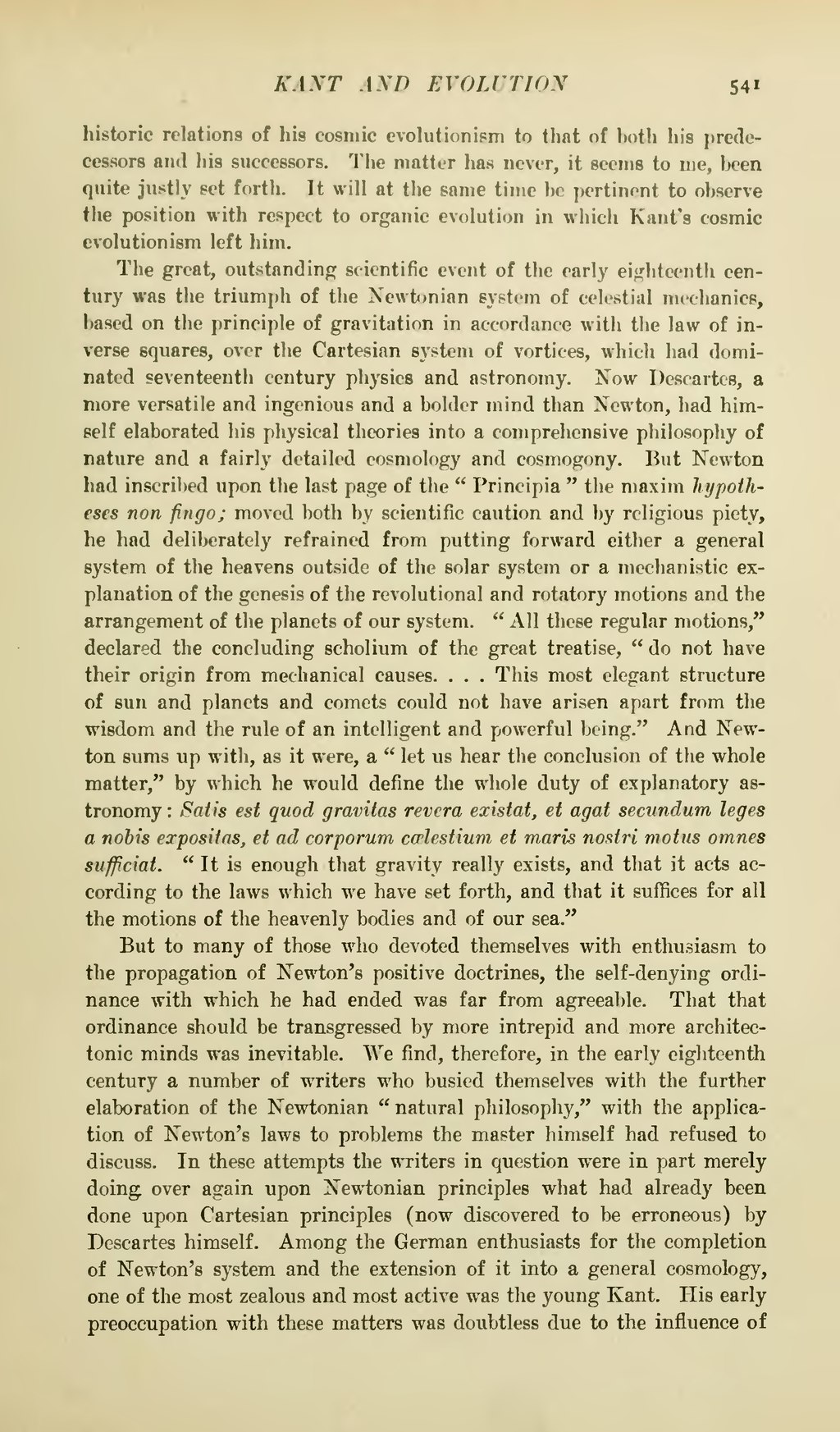historic relations of his cosmic evolutionism to that of both his predecessors and his successors. The matter has never, it seems to me, been quite justly set forth. It will at the same time be pertinent to observe the position with respect to organic evolution in which Kant's cosmic evolutionism left him.
The great, outstanding scientific event of the early eighteenth century was the triumph of the Newtonian system of celestial mechanics, based on the principle of gravitation in accordance with the law of inverse squares, over the Cartesian system of vortices, which had dominated seventeenth century physics and astronomy. Now Descartes, a more versatile and ingenious and a bolder mind than Newton, had himself elaborated his physical theories into a comprehensive philosophy of nature and a fairly detailed cosmology and cosmogony. But Newton had inscribed upon the last page of the "Principia" the maxim hypotheses non jingo; moved both by scientific caution and by religious piety, he had deliberately refrained from putting forward either a general system of the heavens outside of the solar system or a mechanistic explanation of the genesis of the revolutional and rotatory motions and the arrangement of the planets of our system. "All these regular motions," declared the concluding scholium of the great treatise, "do not have their origin from mechanical causes. . . . This most elegant structure of sun and planets and comets could not have arisen apart from the wisdom and the rule of an intelligent and powerful being." And Newton sums up with, as it were, a "let us hear the conclusion of the whole matter," by which he would define the whole duty of explanatory astronomy: Satis est quod gravitas revera existat, et agat secundum leges a nobis expositas, et ad corporum cwlestium et maris nostri motns omnes sufficiat. "It is enough that gravity really exists, and that it acts according to the laws which we have set forth, and that it suffices for all the motions of the heavenly bodies and of our sea."
But to many of those who devoted themselves with enthusiasm to the propagation of Newton's positive doctrines, the self-denying ordinance with which he had ended was far from agreeable. That that ordinance should be transgressed by more intrepid and more architectonic minds was inevitable. We find, therefore, in the early eighteenth century a number of writers who busied themselves with the further elaboration of the Newtonian "natural philosophy," with the application of Newton's laws to problems the master himself had refused to discuss. In these attempts the writers in question were in part merely doing over again upon Newtonian principles what had already been done upon Cartesian principles (now discovered to be erroneous) by Descartes himself. Among the German enthusiasts for the completion of Newton's system and the extension of it into a general cosmology, one of the most zealous and most active was the young Kant. His early preoccupation with these matters was doubtless due to the influence of
